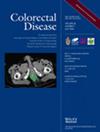Pilonidal sinus disease (PSD), also known as pilonidal disease, is a common chronic disorder in coloproctology and general surgery. It predominantly affects young male patients and is typically located in the sacrococcygeal region. Nowadays, various approaches are used to address this condition, but no consensus on a gold standard has been established. The aim of this study was to analyse and assess current PSD practice, diagnostic and surgical approaches, training and attitudes among Russian surgeons.
A comprehensive online survey comprising 35 structured questions was developed by the Russian Society of Colorectal Surgeons and distributed to its members. The survey targeted colorectal and general surgeons and collected data on demographics, professional experience, surgical training, PSD management practices and both elective and abscess surgery techniques. Categorical data are reported as frequencies and percentages.
Of the 158 respondents, the vast majority were coloproctologists and general surgeons (n = 152, 96%) with over 10 years of experience (n = 110, 69.6%) and performing 10–50 operations per year. The most popular surgical procedures were excision with midline closure (68%), open healing (62%) and marsupialization (59%). PSD-associated abscesses were managed through incision and drainage by 81 surgeons (51%). About half of surgeons had access to laser therapy for treating PSD, but sinus laser-assisted closure was used by only 16%. Most surgeons had received training in PSD surgery under specialist supervision and felt sufficiently trained.
Our findings suggest that PSD surgery in Russia has not yet shifted from midline excisions to off-midline flap procedures and minimally invasive surgery. This study calls for attention to this underprioritized group of patients and underscores the importance of developing national guidelines in Russia.


